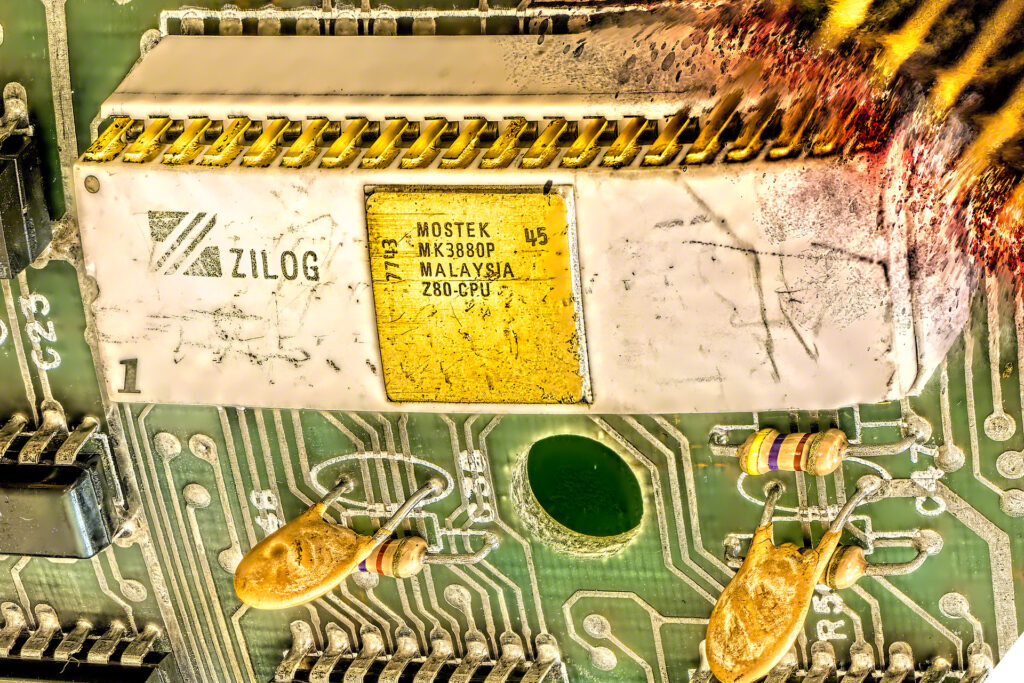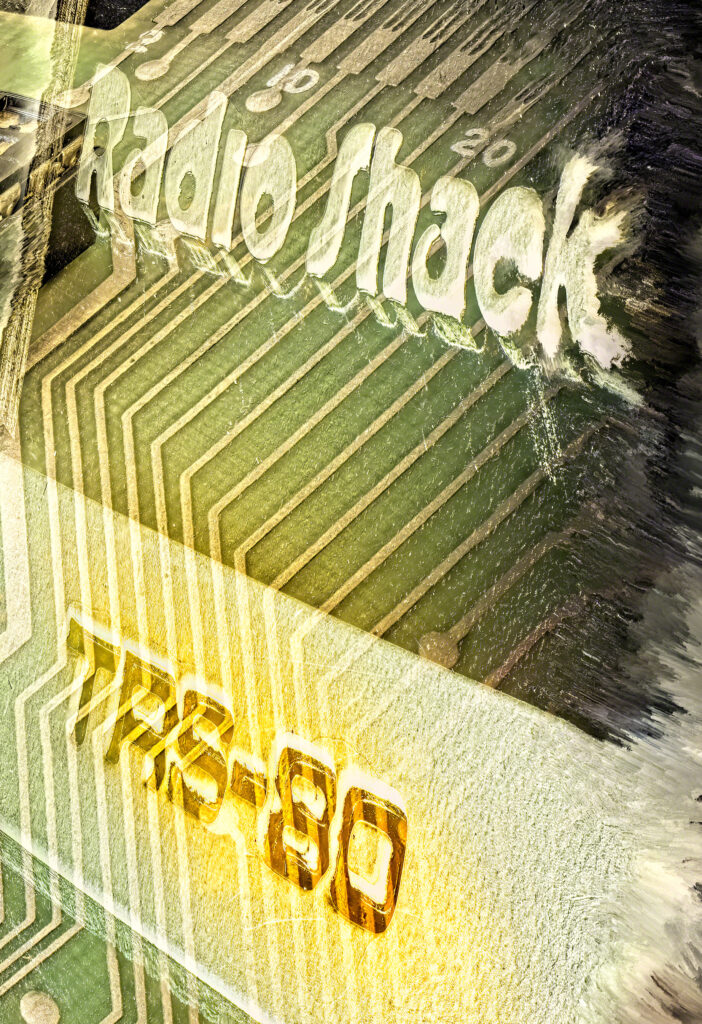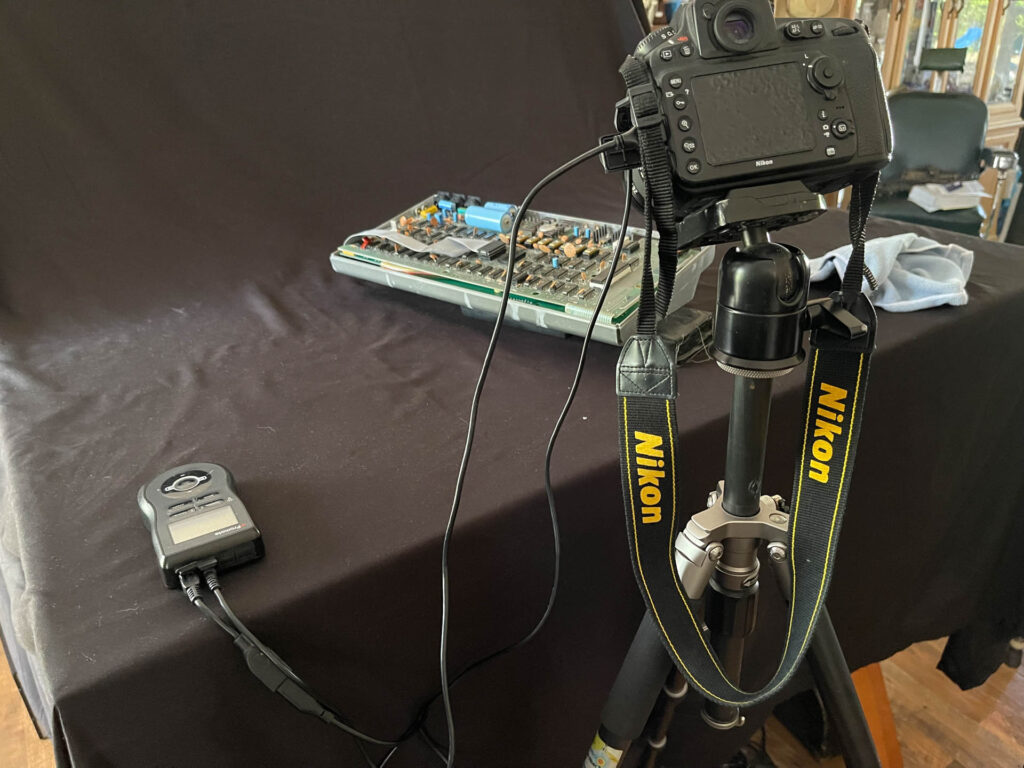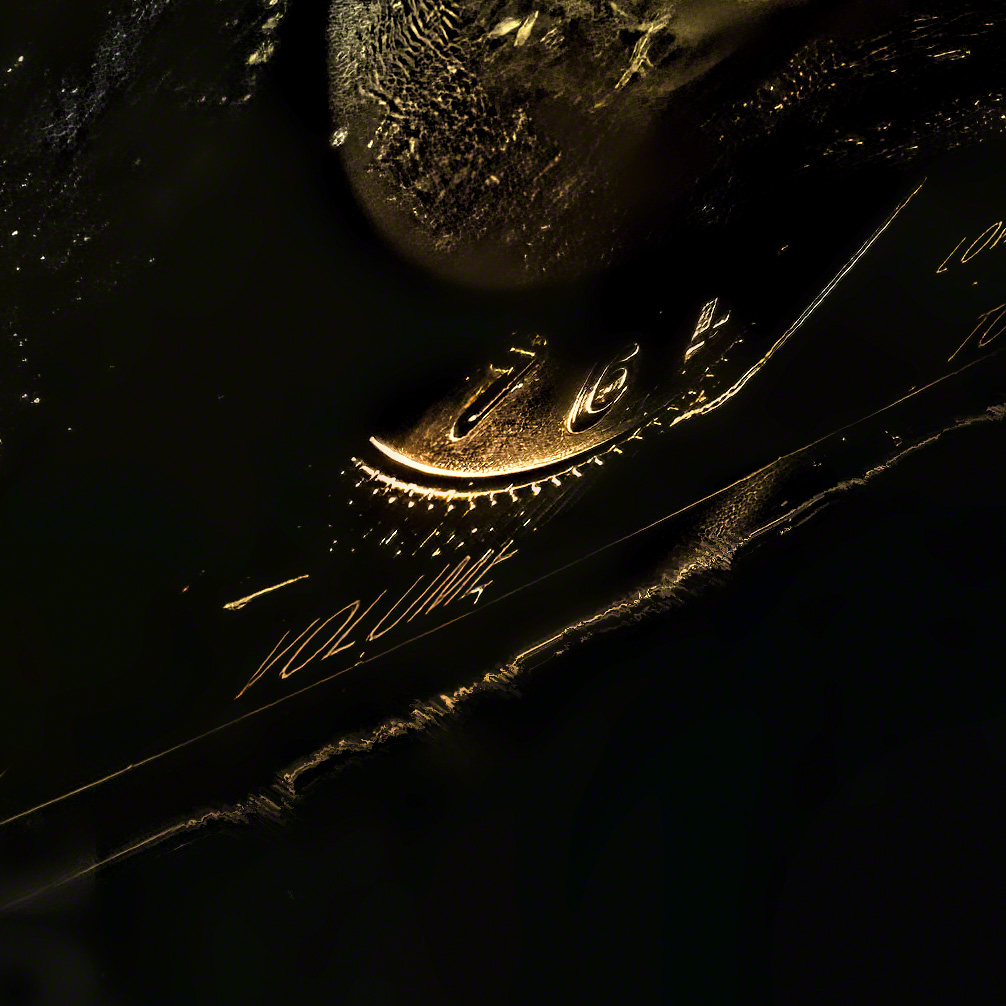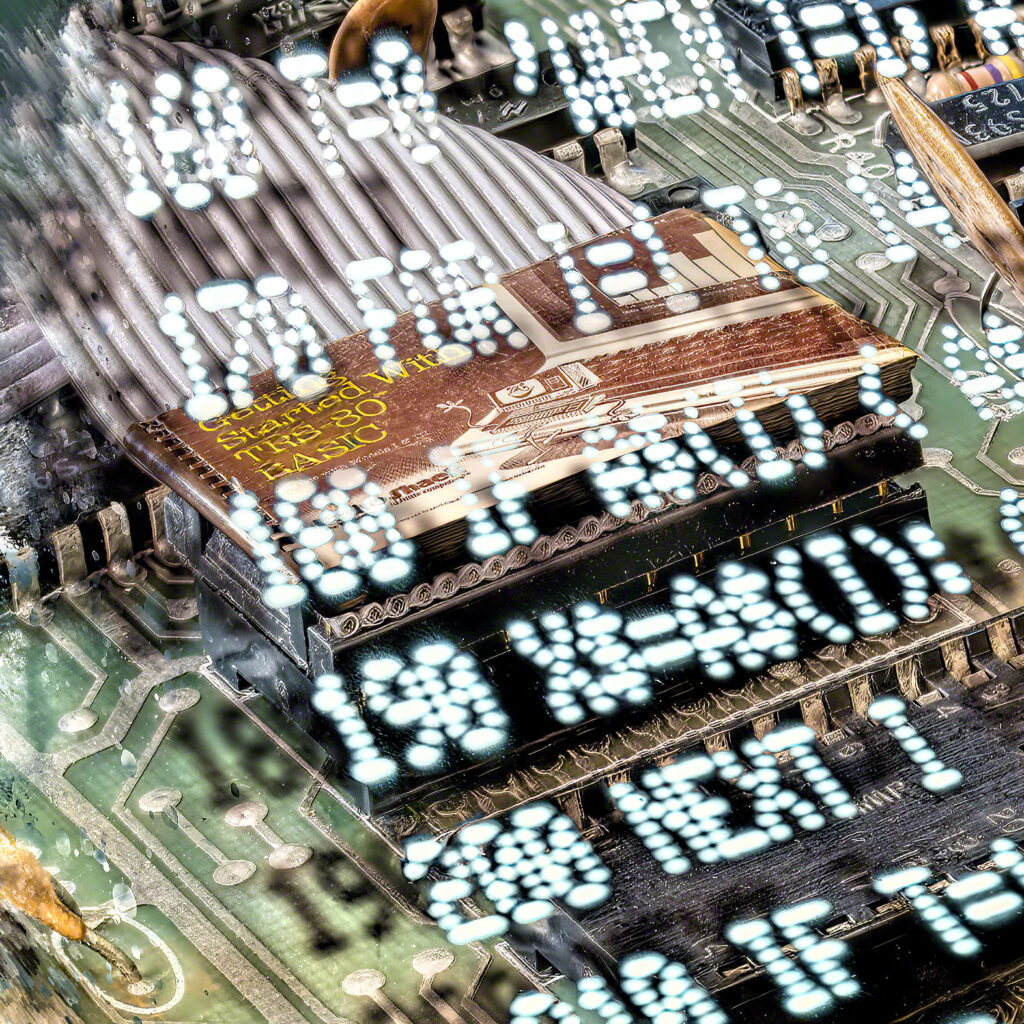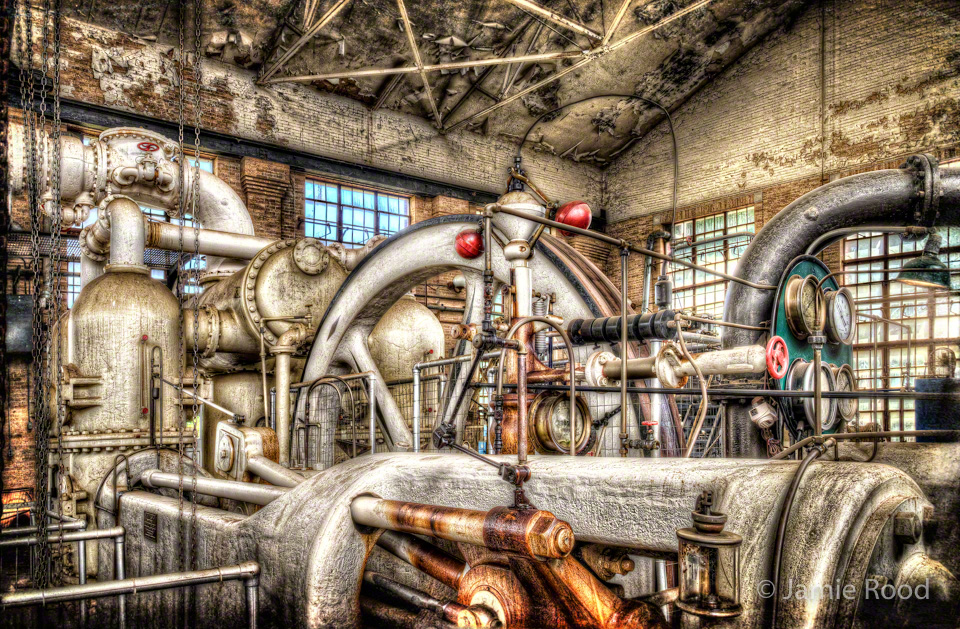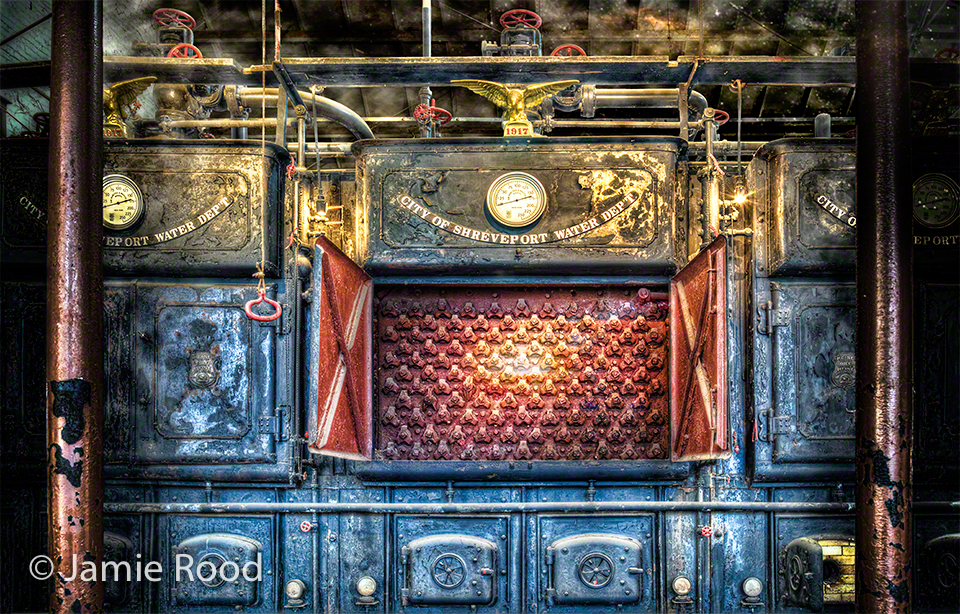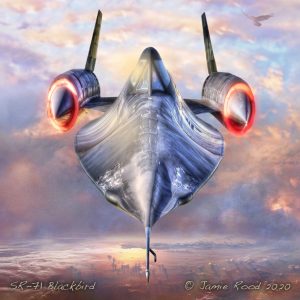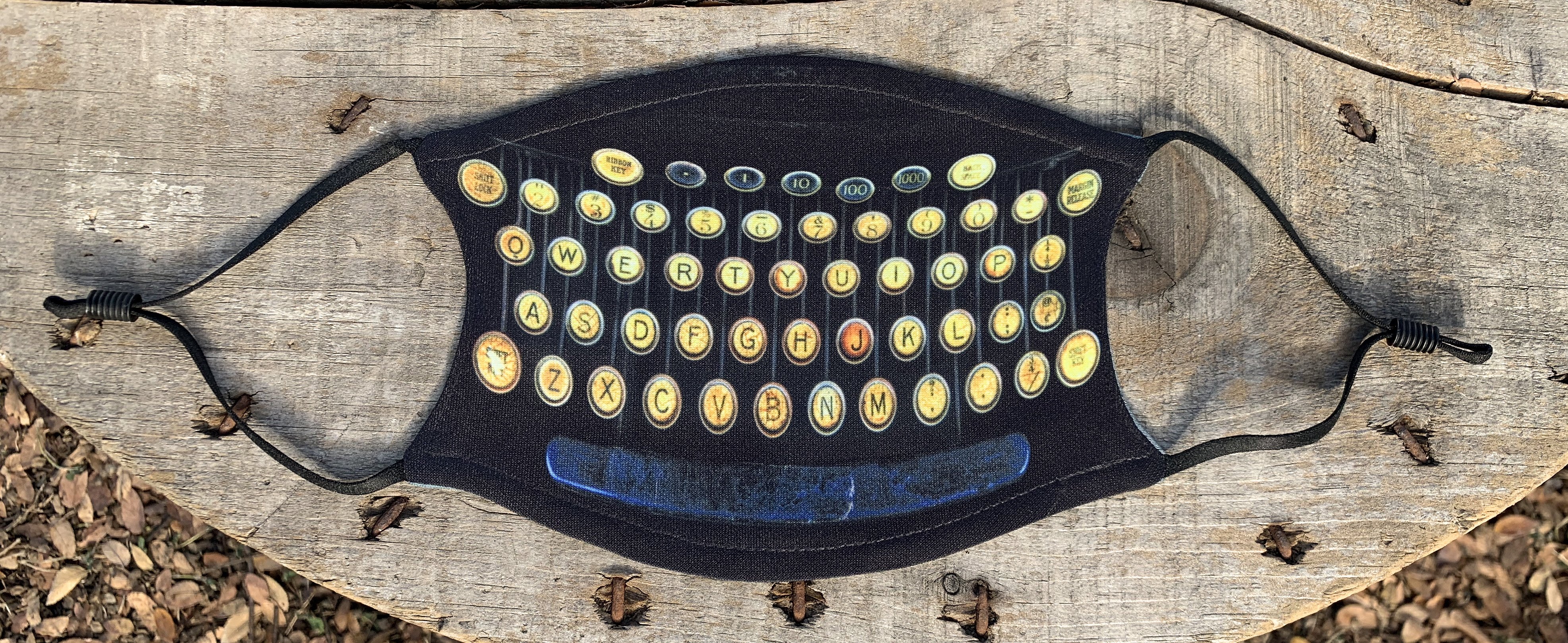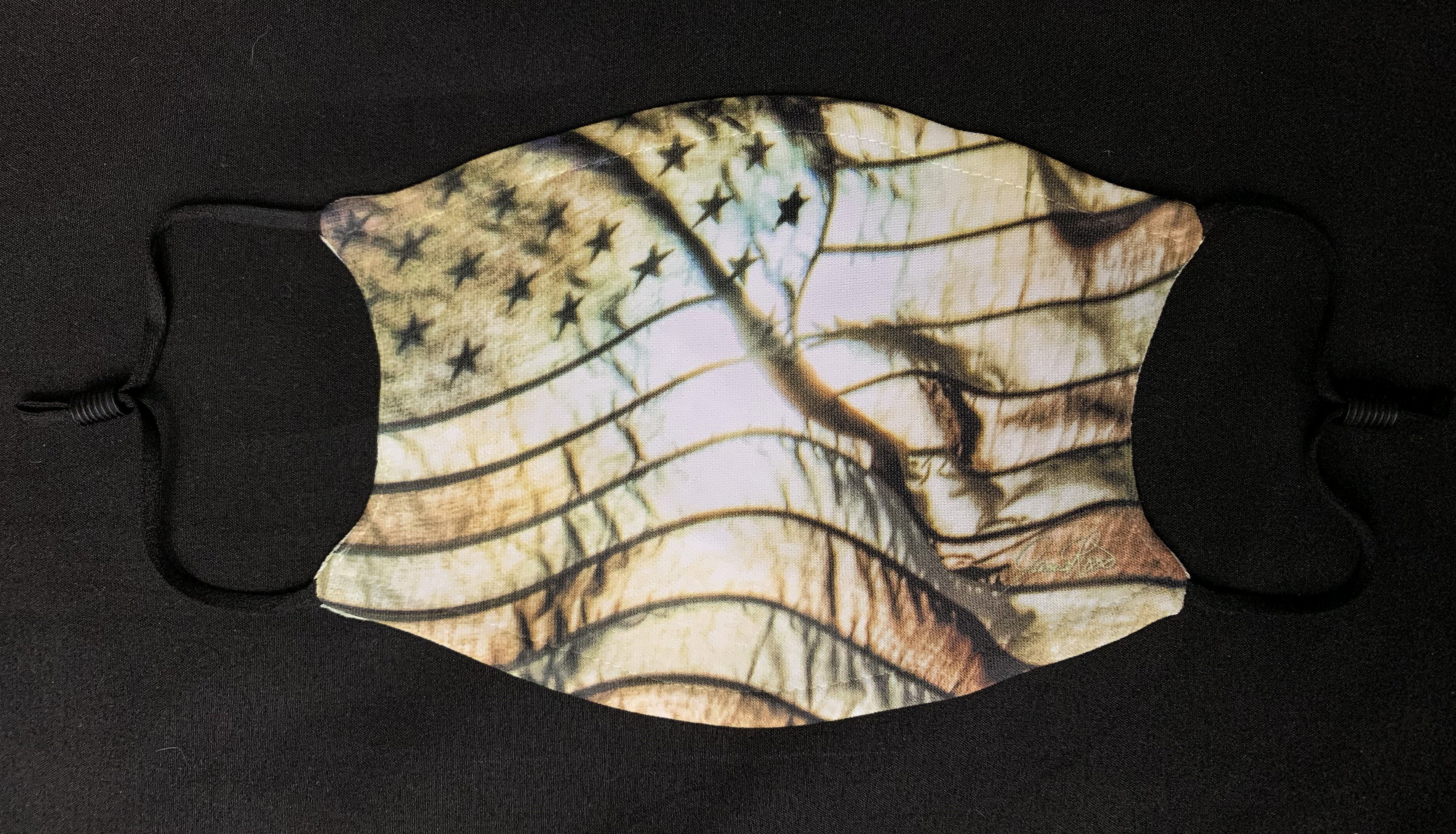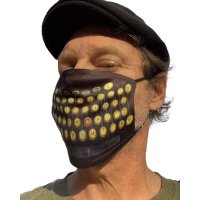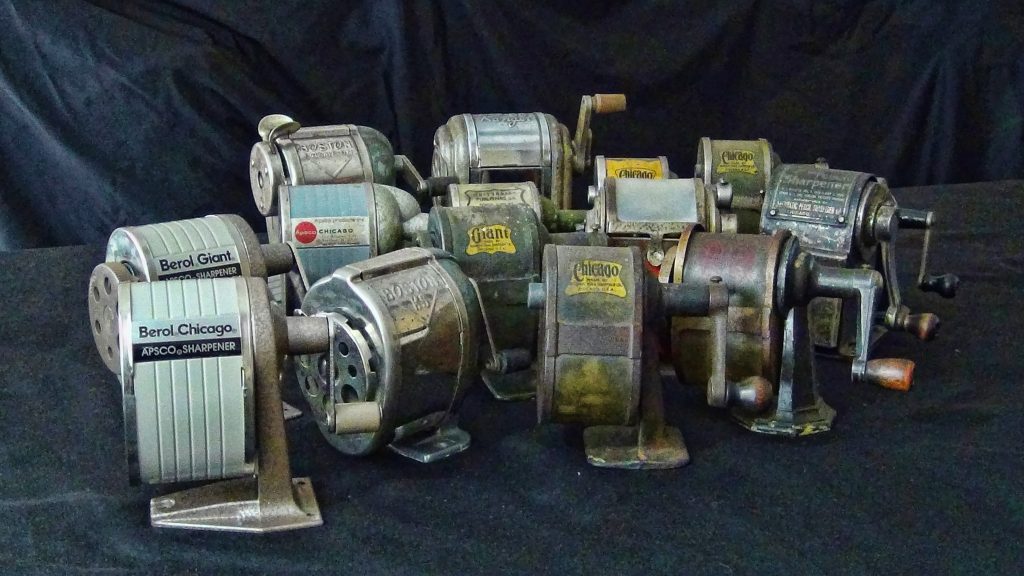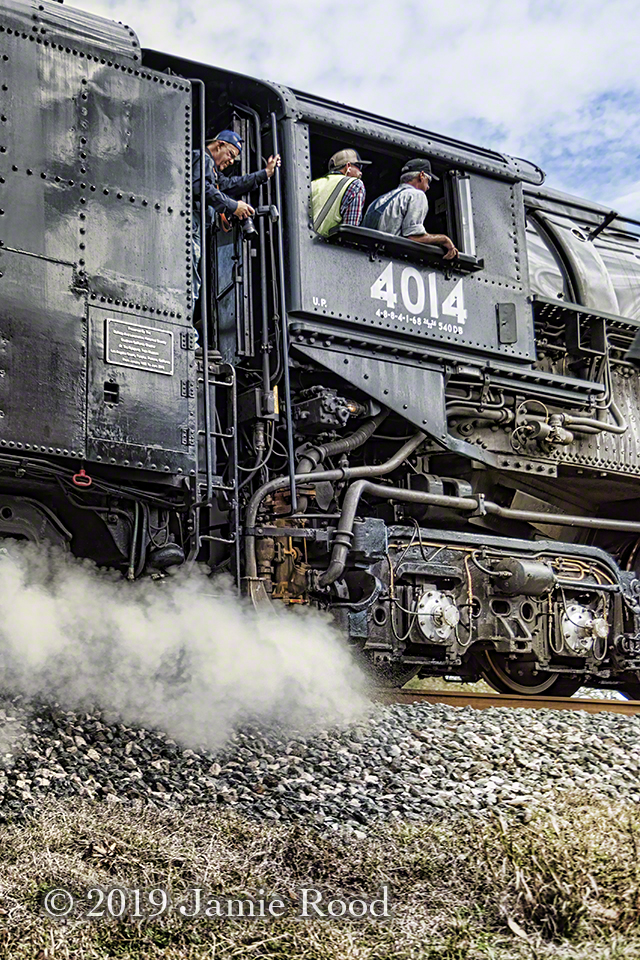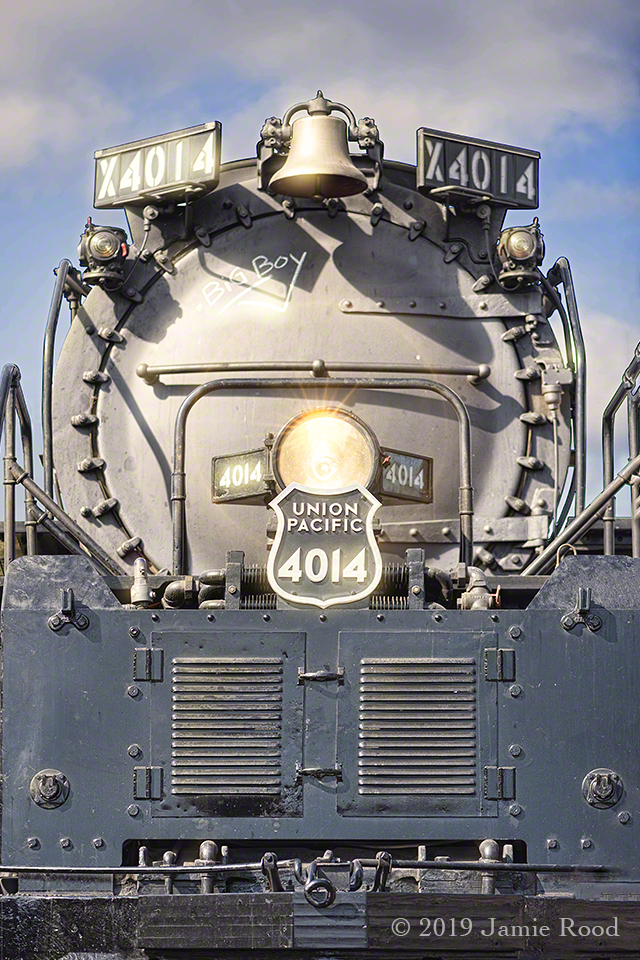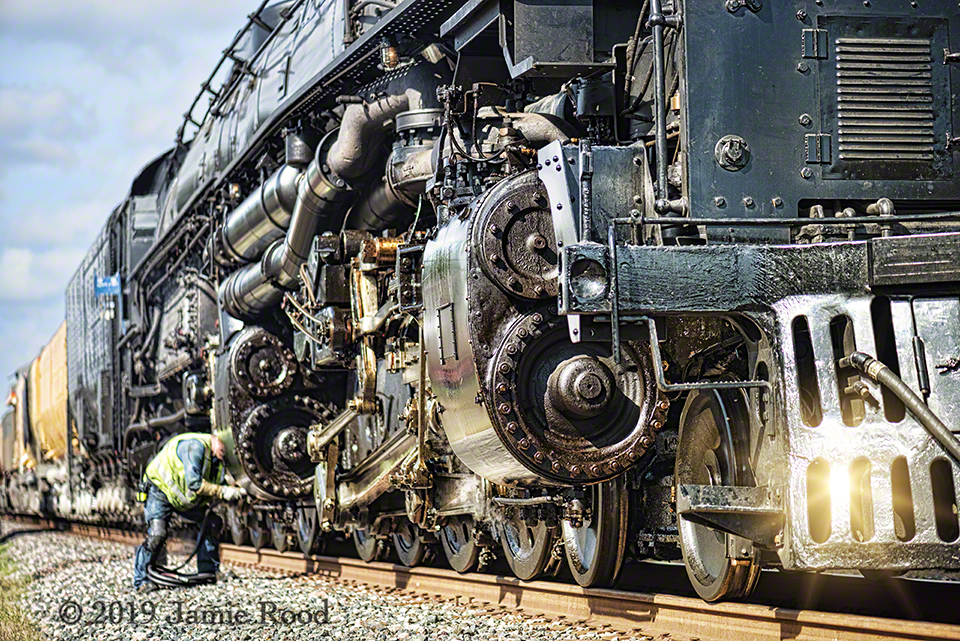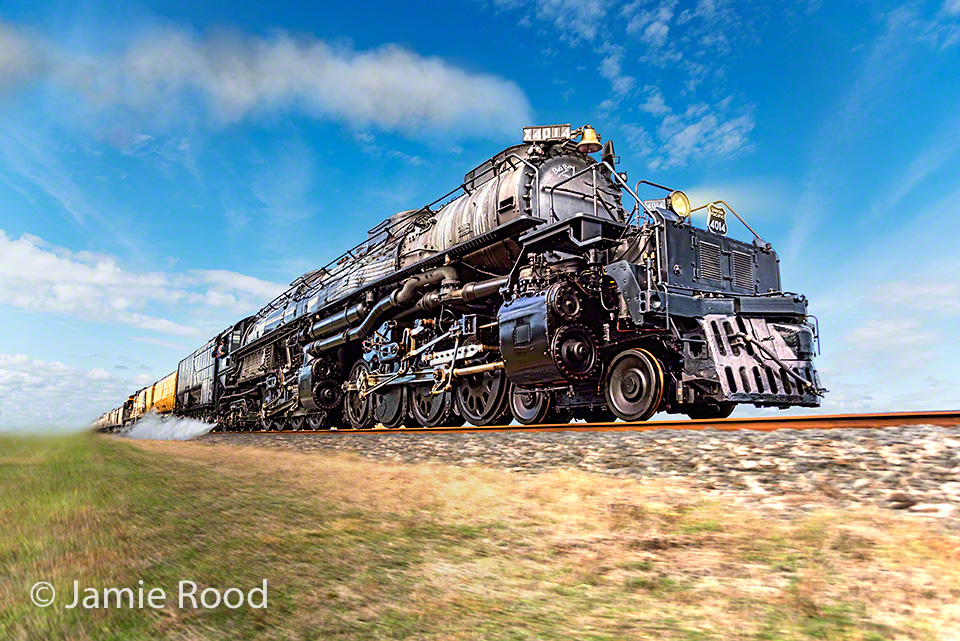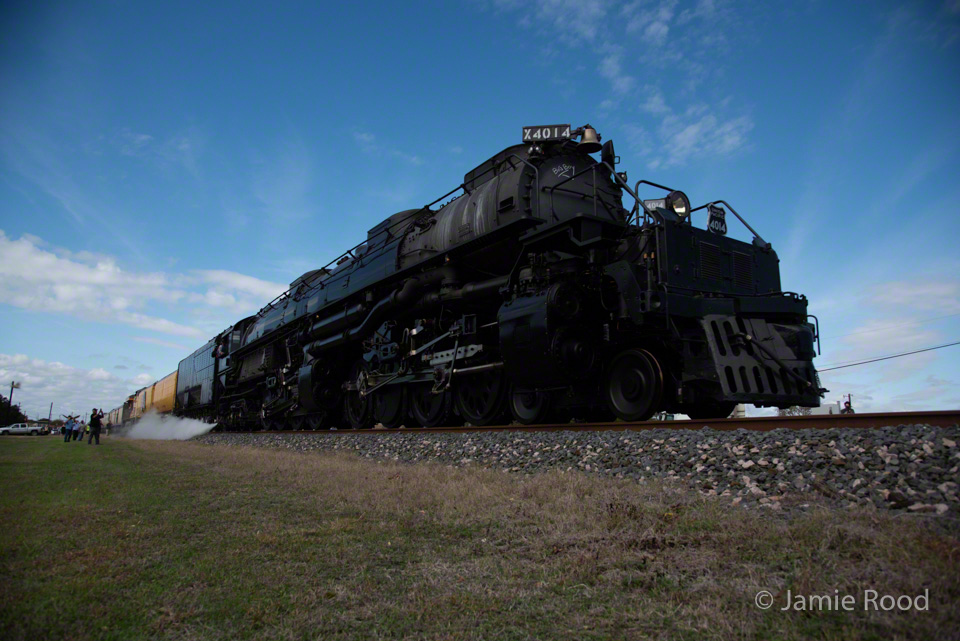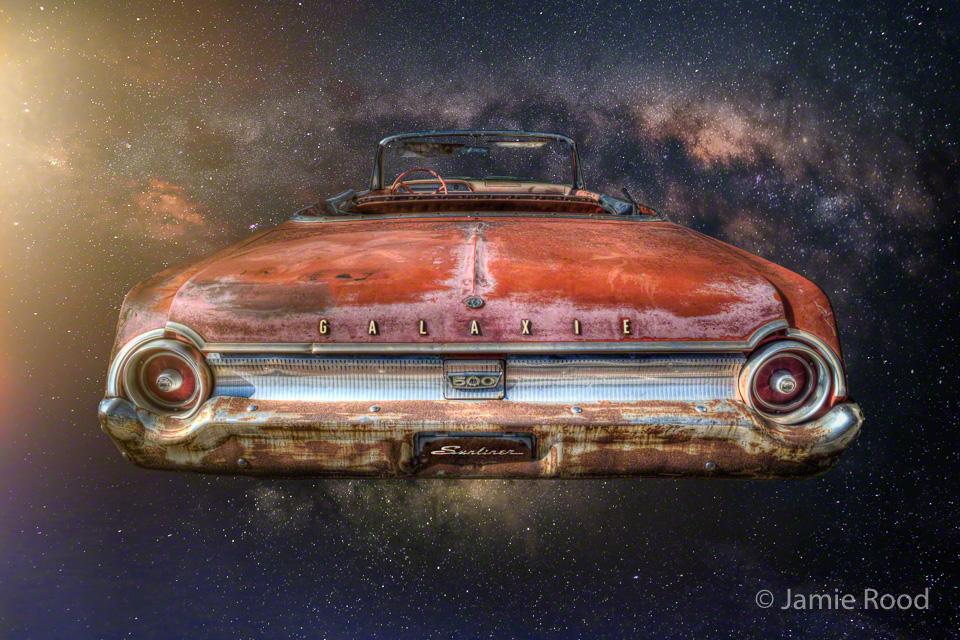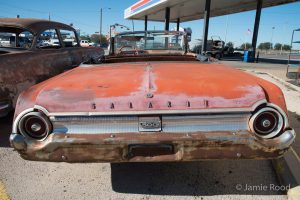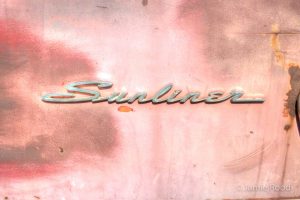Note: this page is currently evolving. Still in Draft form – I’m am editing and adding so check back for updates!
Also, this happened 44 years ago so I’m doing my best to report accurately –
Please comment if you have anything to add or what the TRS-80 or my artwork means to you!
Fall of 1978 – Crockett Jr High: I am sitting at a desk with a handful of other students selected to be part of a special ‘home-room’. Little did I know, we were about to be plugged into a revolution that had slowly been forming in the 70’s and had exploded the year before. We were briefed I guess then moved to a room with a Black & Gray TV & keyboard with a cassette player plugged in. Of course I had played ‘Pong’ on our Television Set at home with my sister and was familiar with a calculator, but this was something much more. You turned it on and after a few seconds was a peculiar ‘Ready >_’ prompt instead of a video. ‘Ready’ to receive a command, ‘Ready’ to just start typing in a ‘program’ of commands – ‘Ready’ to become part of the ‘Personal Computer Revolution!’
Perspective: For those a bit younger, I grew up in a time before most people had access to or even ‘seen’ a computer, much less hold one in your hand. Sure we saw big mainframes & ‘minis’ on TV and hobbyist could order a kit and solder wires and connections together hoping to end up with a box that they could program by flipping switches and such. Calculators were prevalent and included chips but only worked with numbers – not ‘logic’..
Brief History: The Tandy Radio Shack (TRS) Z80 processor based (-80) computer was introduced in 1977 about the same time as the Commodore PET & Apple ][ – forming the ‘1977 Trinity’. These were the the first successful systems consumers could purchase, bring home & use without having the technological skills to build. Although Texas based, they did snag a Silicon Valley ‘Home-brew’ guy to design and build the first units in Fort Worth 😉 – There is a lot of fascinating (to a geek) lore out there, so I’ll just leave the history here (see references below).
Research and Preparation: I began this Quest about 3 months ago. While I remember the introduction in Junior High, I wanted to dive deeper and gain a broader understanding of this piece of our history and create something that connected with others as well. I researched online, read stories of others and how the TRS-80 affected their careers and lives, and ultimately ended up collecting 3 TRS-80 units including one I meticulously cleaned and brought back 100% to life to program and display the working code on the screen for an intense photo shoot in a blacked-out garage with 100+ temps – remember, these units had no cooling fan 😉 Initially I planned on using a model 1006G with the split keypad, but later went with the earlier 1001 without the keypad and cooler looking NEC RAM chips. I also used the TRS logo plate from it, but switched the cool looking white ceramic chip from the first unit I got. I collected one tape recorder to shoot and one just for the DIN cables!
About the Work: So a lot of us recognize the cases of our vintage computers and while they may be presented very ‘artistically’, I am coming from it on what is inside (of the case and hopefully our hearts;). Also the vantage point of a ‘programmer’ which was my career up through 2001. After all, this is where all the magic happened in the view of this old ‘techie’ – from the mind, through the keyboard forming the software that runs as bits through the circuitry, chips and ultimately output to the screen.
In this work, I have highlighted some things that stand out to me and I suspect others. Starting with the Zilog Z-80 chip* as the brain of the system and the beauty of the board layout and supporting integrated chips. Leading to the connection of the ROM board where the basic interpreter is stored – remember initially no Disk Operating System or DOS!. Of course the keyboard which provided the physical ‘touch’ to the machine whether programmer of end user. And still prominent in the background is the cassette tape recorder (original CTR-41). While this may have been interesting to us back then that this analog device was repurposed to store digital programs and data initially, now it just stands out in my mind as something unique as we soon began to think of ‘disk drives’ (and much later solid state & the cloud) as primary storage. Although not initially offered as part of the original Model 1, I did add in a subtle rendering of a small 5 1/4″ external drive 😉 And of the course the ‘DIN’ connector! Power supply, display and tape drive all connected to the back of the keyboard (which included the logic board and CPU.
I wanted to explore the experience of the early users/developers on this machine and obtained the ‘Getting Started with TRS-80 Basic’ manual. I remember typing in and running some of the examples and identified one that did some alphanumeric or text based computing which is one important thing I feel these early PCs brought to the masses which really differentiated them from calculators. I modified the program to fit on one display screen and ran several tests to make sure it actually ran properly. It prompts for 15 text phrases and sorts them alphabetically. Not something your calculator could do 😉
The nameplate got prominence rather than a subtle appearance based on the whole dynamic compared to the others in the trio: Radio Shack was already a household name (remember the CB Radio craze?) and had a ready-made distribution channel where you could at least walk in play with the computer – and at least order if you couldn’t walk out with one 😉 I loved Radio Shack! Again for you younger ones, past-tense as this was a very different place back in the 70’s & 80’s where you could actually buy transistors and stuff.
Subtle Details: Quirky things popped up while reading and I chuckled as I seem to remember them – especially with the cassette loading and saving programs. For example why did I turn the volume to 6 and bring it out from the shadows? Well, there was often some adjustment to get everything to work right and ‘6’ was the recommended ‘starting point’ 😉 And it gave me more interesting detail from the shadows..
The edges including the monitor, power light, key ends etc are painted for a more abstract look and provide more visual interest and flow. Note how the code kinda morphs from the screen onto the logic board with shadow below. Whimsically the Basic manual sits atop the ribbon cable connector symbolizing this is where the ROM Basic is ‘coming from’.
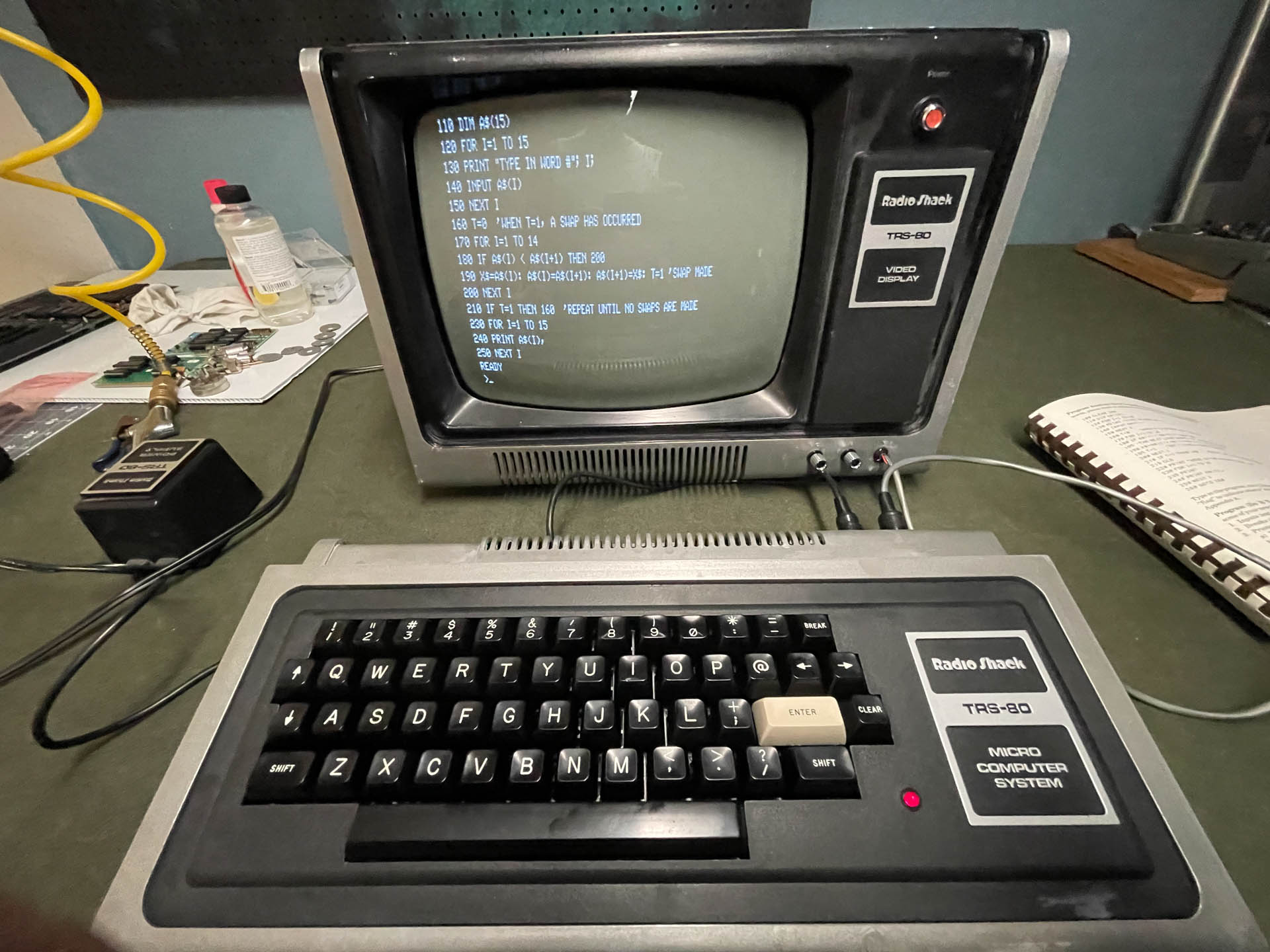

Technical editing notes: * The working board had a black plastic Zilog chip, but I liked the look of the white ceramic Mostek chip, so I shot the board with Zilog chip, pulled them, put the ceramic chip in the working board and shot again. Then I cut out the Zilog chip and overlaid the logo on the Mostek Chip. A bit of cleanup and highlighting gave a nice effect.
So here is a Whimsical Digital Collage featuring an original TRS-80 Logic Board surrounded by Flowing Basic Code, Zilog Z80 Processor, the Keyboard, Monitor, Cassette Drive, 5 1/4 Drive, Nameplate, Basic Manual, & Power Light. Foreground & Background Edges are painted transitioning into more detailed photographic rendering with hand embellishment.
Thank you for reading about my rendering of the Tandy Radio Shack TRS-80 microcomputer system introduced in 1977. I hope you connect with this artwork featuring one of the first Personal Computers to be available to the average person and consider supporting this endeavor by purchasing a print, coaster or larger hand-embellished one of a kind piece. This is my second tech-themed work – see ‘Hello World’. Who knows, this might be the start of a new trilogy of works to come…
Please share with anyone you know who might be into retro or vintage computers and technology.
References:
Priming the Pump: How TRS-80 Enthusiasts Helped Spark the PC Revolution
eBook by David & Theresa Welsh
While I came into the scene as an 8th grader, this couple discovered and embraced the TRS-80 & culture as adults and authored the popular Lazy Writer software. This was a great read to get in touch with the history and be a part of the Revolution & kept me up many nights reading on the Kindle app on my iPhone…
Ira Goldklang’s TRS-80 Revived Site
OMG, this site almost had me making cables and wanting to troubleshoot TRS-80s instead of working on my art – probably why I held-out on a ‘working’ unit
And special thanks to cyberbiff from eBay who “rescued” the system [I primarily used] from a pile (literally) of random electronics at a hamfest a number of years back intending to restore it, but never got to it. He helped me get it back running and now it’s immortalized!









